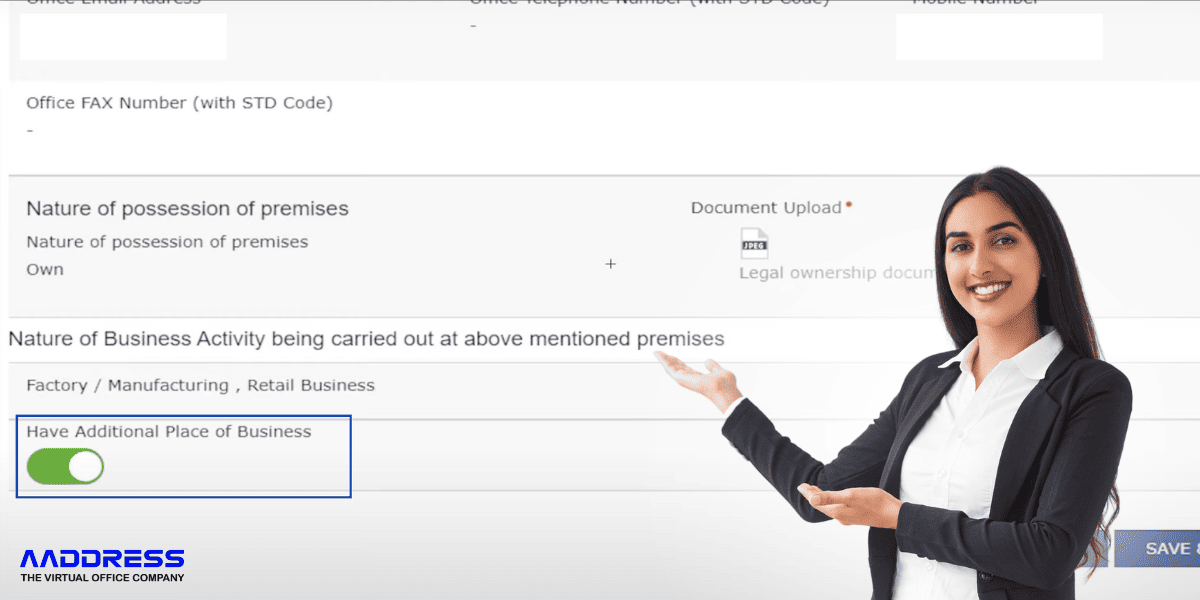Don’t just get a virtual office—let us help you build your business with our expert resources.Learn More
How to Start an E-Commerce Business Using a Virtual Office

Introduction
Are you an e-commerce business owner?
In today’s rapidly digitalizing world, commerce is no longer limited to physical stores. Consumers are increasingly preferring shopping online over offline, and businesses are embracing the virtual market to launch and grow their enterprises.
A virtual office is one of the most innovative ways to start an e-commerce business. This article explores how to start an e-commerce business using a virtual office, including the key steps, considerations, and benefits.
Understanding the Virtual Office
Before discussing the details let’s understand, what is a virtual office.
A virtual office is a flexible business solution that provides companies with a professional address, phone number, meeting rooms, and other essential facilities without the need for a physical space. It allows businesses to establish a credible presence while significantly reducing overhead costs.
Benefits of Using a Virtual Office for E-Commerce
1. Cost-Efficiency:
Traditional offices come with expenses like rent, maintenance, and utility bills. A virtual office eliminates these costs, allowing you to allocate resources toward other critical areas of your business.
2. Enhanced Brand Image:
A prestigious business address in a prime location enhances your brand's credibility and appeal, instilling confidence in customers and partners.
3. Operational Flexibility:
A virtual office allows you to work from anywhere, offering the flexibility to manage your business on your terms.
4. Additional Support Services:
Virtual offices often provide valuable services such as mail handling, call forwarding, meeting room access, and more, ensuring smooth business operations.
Steps to Start an E-Commerce Business Using a Virtual Office
1. Define Your Goals and Objectives:
Begin with a clear vision of your business. Identify your target customers, products, and market position. A well-defined plan will save time, money, and effort in the long run.
2. Choose Your Niche:
Select a niche that aligns with your business goals and has proven market demand. Conduct thorough research to understand current trends, competitors, and future opportunities.
3. Select a Virtual Office Service Provider:
Research and choose a reliable virtual office provider. Consider the location’s strategic importance and ensure the provider offers all the necessary services for seamless business operations.
4. Complete Legal Formalities:
Register your e-commerce business and acquire the required permits and licenses. Consult legal experts to ensure compliance with local regulations and laws related to your business.
5. Build Your Online Presence:
Develop a professional website with a user-friendly design that effectively showcases your products. Optimize your site for search engines (SEO) to attract organic traffic and engage your audience with compelling content.
6. Source Products and Manage Inventory:
Decide whether you’ll manufacture products, work with suppliers, or use dropshipping. Implement robust inventory management to meet market demand efficiently.
7. Secure Payment Gateways and Logistics:
Integrate secure payment gateways to protect customer transactions. Partner with reliable logistics providers to ensure timely delivery of products.
8. Develop Marketing and Branding Strategies:
Create a comprehensive marketing plan that includes digital marketing (content, social media, email marketing, influencer collaborations) and offline strategies (product placement, pricing). Craft a captivating brand story to connect with your audience emotionally.
9. Offer Exceptional Customer Service:
Provide top-notch customer support through multiple channels like email, chat, and phone. Address queries and concerns promptly to build trust and loyalty.
10. Scale and Adapt:
Continuously monitor your business performance using analytics tools. Identify areas for improvement, stay updated with market trends, and adapt your strategies to remain competitive.
Virtual Office vs Physical Office for E-Commerce Business
| Feature | Virtual Office | Physical Office |
|---|---|---|
| Cost | Lower overhead costs - no rent, utilities, maintenance | Higher costs for rent, utilities, maintenance |
| Flexibility | Highly flexible - work from anywhere with an internet connection | Fixed location, less flexible |
| Professional Address | Prestigious business address without physical space | Physical presence at a specific location |
| Team Collaboration | Virtual meetings and digital tools enable remote collaboration | Face-to-face meetings and direct interaction |
| Mail Handling | Mail handling services provided by the virtual office provider | Direct handling and sorting of mail on-site |
| Technology Access | Access to technology through digital means | Full access to office equipment and technology on-site |
| Brand Presence | Virtual address can enhance brand perception without physical space | Stronger physical presence can enhance credibility |
| Operational Costs | Lower operational costs compared to physical office | Higher operational costs like utilities, cleaning |
| Risk Reduction | Virtual offices offer a risk-free solution for new businesses with lower upfront costs | Physical offices require higher upfront investments |
| Personal Branding | Virtual office provides a professional address to separate personal and professional life | A personal home address may be used initially |
| Scalability | Virtual offices allow easy scalability as needed without long-term commitments | Scaling a physical office requires significant planning and investment |
Key Considerations
1. Data Security:
Protect customer data and payment information with robust cybersecurity measures to safeguard your business reputation.
2. Regulatory Compliance:
Stay updated with local tax regulations, data privacy laws, and industry standards to avoid legal pitfalls.
3. Customer Satisfaction:
Focus on delighting customers with quality products and outstanding service to build lasting relationships.
4. Embrace Innovation:
Utilize technology for inventory management, order processing, and customer engagement to streamline your operations.
Conclusion
Starting an e-commerce company using virtual offices has special perks like saving costs, flexibility of operations, branding, customer support, etc.
The steps involved in building an e-commerce business include planning, selecting suppliers, identifying competitors, legal formalities, branding, building a customer base, etc. With all the benefits of virtual offices, one can build a successful e-commerce business.
Subscribe To Our Newsletter
Conquer your day with daily search marketing news.
Most popular Blogs
Top 5 Locations in Delhi to Set Up Your Virtual Office
When you start a business in Delhi, there's always that one uncle or friend who...
Read Full ArticleReading Time: 5 min.How to Start Water Bottle Business in India: A Practical Guide
Starting a water bottle business in India can be a smart and rewarding move. ...
Read Full ArticleReading Time: 4 min.How to Add Additional Place of Business in GST Online (2025 Guide)
Adding an additional place of business in GST is mandatory for each business if they...
Read Full ArticleReading Time: .Low-Cost Business Ideas with High Profit
Introduction Starting your own business is becoming a popular choice for many people today....
Read Full ArticleReading Time: .



